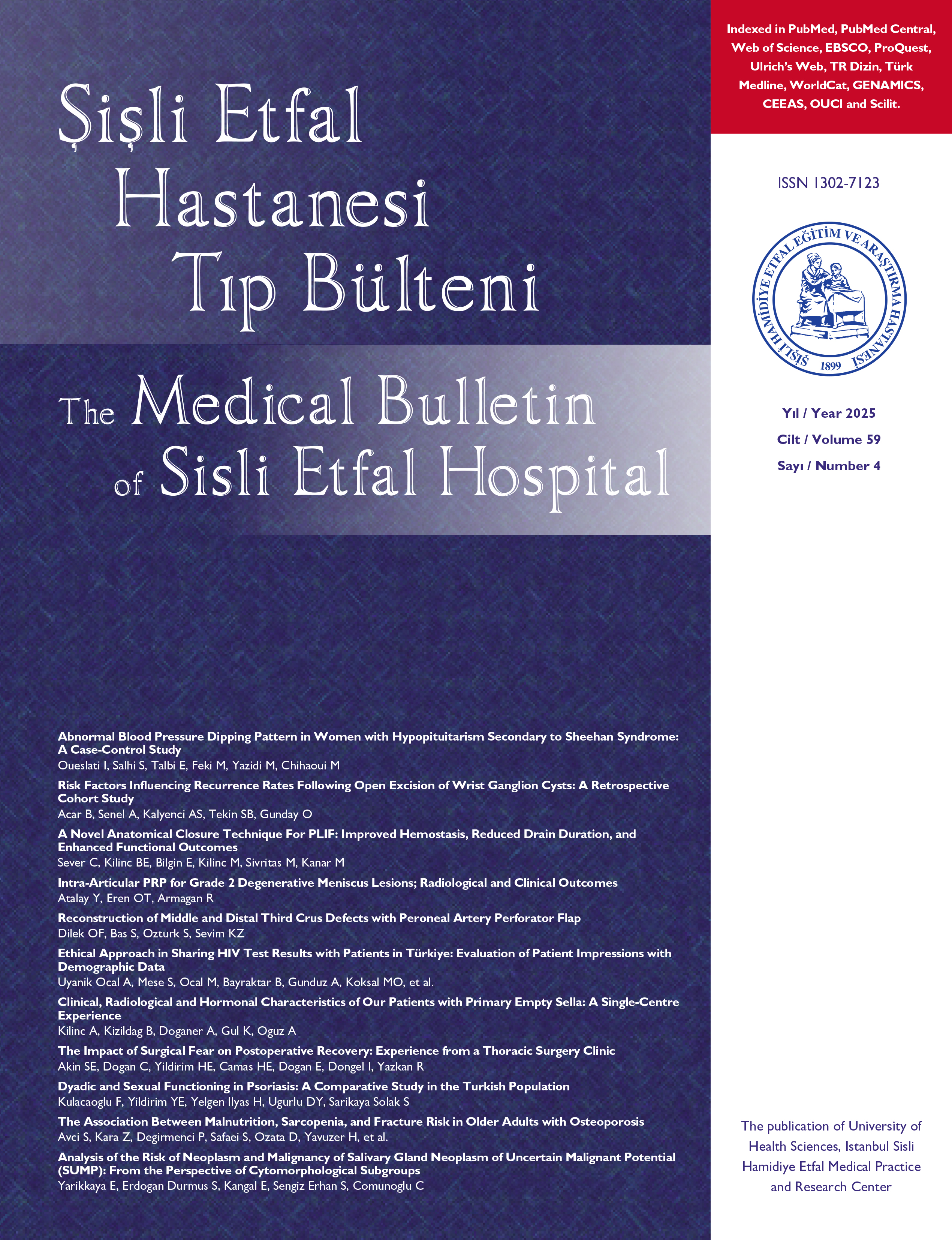
The relationship between breast feeding and depression in the early postpartum period
Hava Özkan1, Zehra Demet Üst1, Gülsüm Gündoğdu2, Ayla Çapık1, Safiye Ağapınar Şahin11Atatürk Üniversitesi, Sağlık Bilimleri Fakültesi, Ebelik Bölümü, Erzurum-Türkiye2Erzincan Üniversitesi, Sağlık Yüksekokulu, Hemşirelik Bölümü, Erzincan-Türkiye
Objective: The objective of this study was to determine the relationship between breast feeding and postnatal depression in mothers in the early postpartum period.
Material and Method: This descriptive and correlational study was conducted at the maternity hospitalin the city center of Erzurum between 1 February 2013 and 30 April 2013. The data were collected using the Introductory Information Form, LATCH Breastfeeding Assessment Tool and Edinburgh Postnatal Depression Scale. One way analysis of variance, t test, Kruskal-Wallis, Mann-Whitney U and correlation analysis were used to assess the data.
Results: It was determined that there was a statistically significant difference between the age, educational level and pregnancy number of mothers and LATCH mean scores (p<0.05), and a statistically significant difference between the EPDS mean scores and income level, pregnancy number and pregnancy intention of mothers (p<0.05). According to these results, no relationship was determined between LATCH and EPDS mean scores.
Conclusion: As a result of the study, it was determined that mothers had a moderate-level success of breast feeding, one fourth of them were under risk in terms of depression and there was no relationship
between the depression and breast feeding.
Keywords: Early postpartum period, postnatal depression, breast feeding.
Erken postpartum dönemde emzirme ve depresyon arasındaki ilişki
Hava Özkan1, Zehra Demet Üst1, Gülsüm Gündoğdu2, Ayla Çapık1, Safiye Ağapınar Şahin11Atatürk Üniversitesi, Sağlık Bilimleri Fakültesi, Ebelik Bölümü, Erzurum-Türkiye2Erzincan Üniversitesi, Sağlık Yüksekokulu, Hemşirelik Bölümü, Erzincan-Türkiye
Amaç: Bu araştırma, erken postpartum dönemde olan annelerde emzirme ile doğum sonu depresyon arasındaki ilişkinin saptanması amacıyla yapılmıştır.
Gereç ve Yöntem: Tanımlayıcı ve ilişki arayıcı tipte olan araştırma 1 Şubat2013-30 Nisan 2013 tarihleri arasında Erzurum il merkezinde bulunan Kadın-Doğum hastanesinde yapılmıştır. Veriler Tanıtıcı Bilgi Formu, LATCH Emzirme Tanılama Ölçeği ve Edinburgh Doğum Sonrası Depresyon Ölçeği ile toplanmıştır. Verilerin değerlendirilmesinde tek yönlü varyans analizi, t testi, Kruskal-Wallis, Mann-Whitney U ve korelasyon analizi kullanılmıştır.
Bulgular: Annelerin; yaşı, eğitim düzeyi ve gebelik sayısı ile LATCH puan ortalamaları arasında istatistiksel açıdan anlamlı fark olduğu (p<0.05), EDSDÖ puan ortalamaları ile annelerin gelir düzeyi, gebelik sayısı ve gebeliği isteme durumu arasında istatistiksel olarak anlamlı fark olduğu belirlenmiştir (p<0.05). Bulgulara göre LATCH ve EDSDÖ puan ortalamaları arasında bir ilişki olmadığı saptanmıştır
Sonuç: Araştırma sonucunda annelerin; emzirme başarılarının orta düzeyde olduğu, dörtte birinin depresyon açısından risk altında olduğu ve depresyon ile emzirme arasında bir ilişki olmadığı belirlenmiştir.
Anahtar Kelimeler: Erken postpartum dönem, doğum sonu depresyon, emzirme.
Manuscript Language: Turkish



















